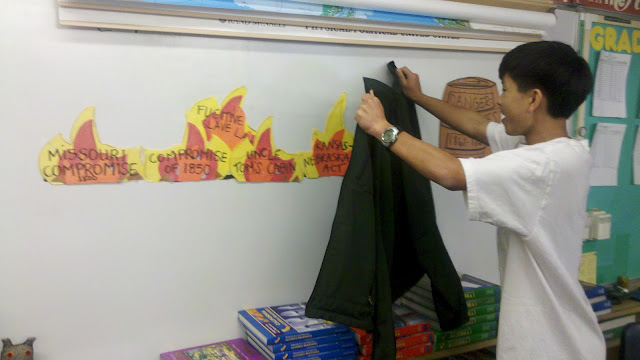Julian Treasure, an advertiser whose expertise is sound,
fears we are losing our listening skills and wants us to teach listening in schools.
In his TED talk, he gives a few tips after he explains the dynamics of listening. He begins by noting that our ability to record (writing and sound waves) has drastically reduced the premium on listening.
 |
| Julian Treasure gives some sound advice |
Inattention isn't just a problem in the classroom; for those of us who make a living through communication, it's the quintessential obstacle we must overcome. And today we have more competition for attention than ever before. Ever deliver a lesson to someone whose head was bobbing and fingers were drumming, and realize he is listening to a song in his head, and you'd have to repeat everything? Ever try to get someone's attention only to notice that she was wearing earplugs, forcing you to flap your hands about, and then feel as if you are an intrusion?
These past five years as a teacher, I've noticed a shift in the level of imagination that kids bring to the table. They are as exuberant as ever, as intelligent as ever, but when you turn the thinking over to them, many seem truly lost.
Are we also losing the ability to listen to ourselves? Isn't that what thinking is?
I have a friend who said she couldn't fall asleep unless the radio was on. Her eight hours were infiltrated by all kinds of lyrics and commercials that seeped into her brain at some level.
I have a friend whose television is always on, loud enough to compete with our conversation, though no one is watching it.
My uncle leaves NPR on in the car, even though he has lively conversations with his passengers.
Mr. Treasure suggests three minutes of daily silence and notes incidentally that nearly every spiritual tradition has contemplation as a component of its practices. Three minutes off the grid with only our thoughts to occupy our minds--could you do it? Could our kids? Would that be "a waste of time" or part of a true education?

